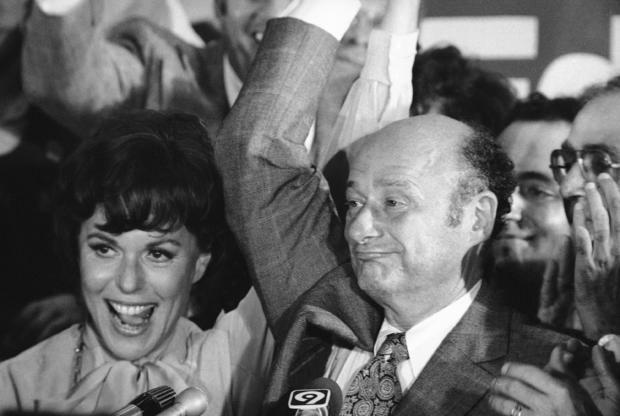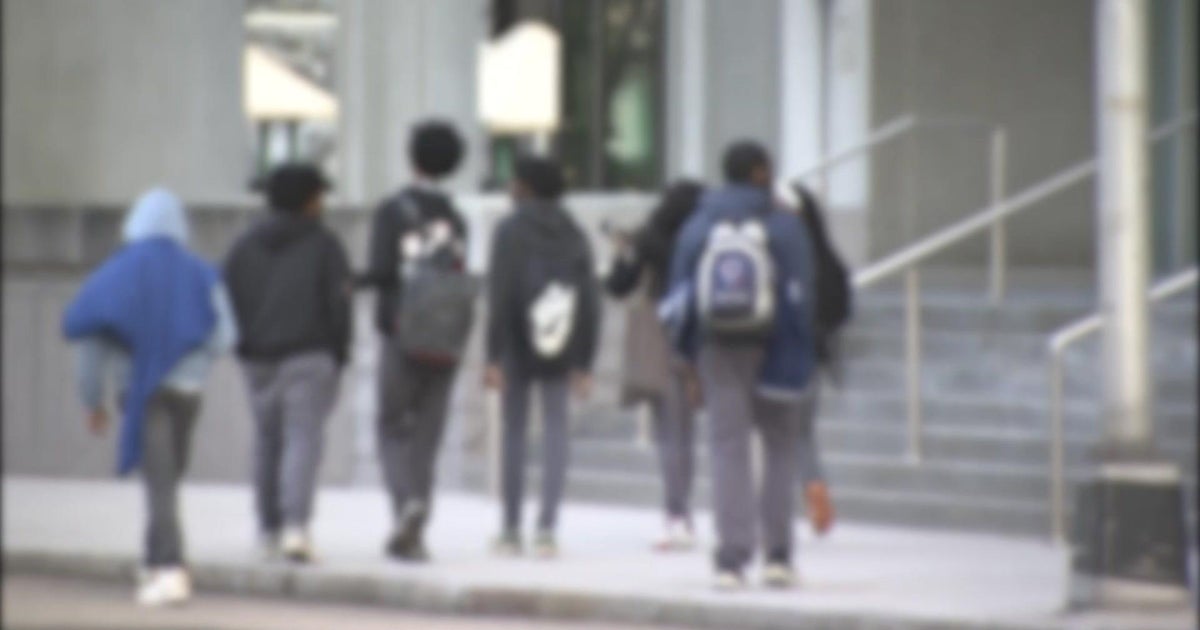Iconic Newsmaker #2: Ed Koch
A bachelor married to politics, Ed Koch was an outspoken character, political lion and a fixture at New York City restaurants, movie theaters and subways for over 50 years. He was also one of the city's finest, most dedicated mayors.
⇒Complete 1010 WINS Iconic New York Series⇐
Early Life
The quiet son of Polish Jewish immigrants, Edward Irving Koch was born in the Bronx on December 12, 1924. The hard working boy started bringing money into the family home when he was just nine years old. The Kochs moved to Newark to save money while he was in high school, but made their way back to the city after Koch's graduation, settling this time in Brooklyn on Ocean Parkway.
Koch did a two year stint at City College, but was drafted into the Army during WWII. A medaled infantryman, he made the rank of sergeant prior to receiving an honorable discharge at the end of the war. His ability to speak German came in handy and Koch remained in military service post VE Day in Bavaria, where he was tasked with replacing Nazi public officials with non-Nazis. This helped to get the small country back on its feet. His job complete, he returned to Brooklyn and his parents' home.
The Beginnings of a Political Career
Koch pursued a law degree and practiced at his own firm for twenty years. However, politics began to intrigue him during the Adlai Stevenson presidential campaign. An avid liberal, Koch got involved in Stevenson's ill-fated run against Dwight D. Eisenhower.
Now in his thirties, an ambitious Koch nabbed a rent-controlled apartment in Greenwich Village and turned his attention to the eradication of Carmine De Sapio and New York's corrupt Tammany Hall political machine. A victorious Koch, leading a burgeoning reform movement and with the support of the Village Independent Democrats, later won a City Council seat in 1966, heralding in a new era focused on liberal causes and anti-poverty initiatives.
Known for his simple wit and honest repartee, Koch went on to represent the Upper East Side of Manhattan as a Congressional representative from 1969 – 1977, championing causes like health care for the elderly, support for Israel and Social Security reform. A dyed-in-the-wool New Yorker, Koch hated leaving the city for Washington, D.C. and traveled as little as his job would allow. He made his first run for mayor of the city he loved in 1977.
"How'm I doing?"
Koch's first Mayoral campaign was earmarked by a shift in his early liberal views to more mainstream conservatism. While some would never forgive him for this change, a wide voter base found him more accessible and he was endorsed by The New York Post, which helped to solidify his success. Victorious, an ebullient Koch would go on to serve the city as Mayor for three terms, from 1978 – 1989. His catch phrase, "How'm I doing?" was uttered in public, on radio and during television appearances. Separating him from the average politician was the obvious fact that he really wanted to know the answer.
Turning a Tough City Around
Koch inherited a city plagued by rising crime rates and a crumbling infrastructure. Brash and courageous, he got to work immediately, bringing the city back to solvency from near bankruptcy and creating a wide-spread and ambitious housing and revitalization effort in depressed neighborhoods throughout the boroughs. He is credited with building or rehabilitating over 200,000 housing units, sparking urban renewal and generating increased revenue for the city while balancing the budget.
He also sowed new seeds of racial unrest during those early years at City Hall, inadvertently alienating African American and Hispanic leaders who felt that he appeared to favor the middle class. Koch made an ill-conceived attempt to run for governor after winning his second term. He lost and turned his attention back to the city.
Koch's third term had a markedly different tone from his first two, highly successful terms. His administration was rocked by a multitude of scandals from graft to inefficiency. Despite being innocent of wrongdoing himself, the mayor took a huge hit in both the polls and in his ability to effectively lead. Homelessness escalated and the stock market crashed in 1987, undermining much of the prosperity the city had enjoyed under his leadership. The AIDS crisis and ever-increasing racial tension throughout New York may have had the most adverse affect on Koch's popularity and leadership during that last term.
Losing Reign
Rumors of his sexuality had dogged the unmarried Koch for years. Many leaders of the LGBT community felt that Koch did not do enough to help AIDS patients in New York during the early years of the crisis for fear of being outed himself as a homosexual. Koch insisted this was not true and always held firm that he did as much as he could for AIDS patients during the early years of the outbreak. He also held fast that his sexuality was no one's business but his own.
Down but not out, Koch made a final run for a fourth primary. The city was seething with racial tension due to several incidents, including the death of 16-year-old Yusef Hawkins at the hands of a white mob. No matter the cause for this final loss, Koch claimed he felt relief upon learning that he had lost the race to New York's next mayor and his successor, David Dinkins.
An Undeniable Legacy
Sharp as ever, Koch turned his attention back to practicing law after leaving public office. He also spent time as an online movie reviewer and kept his hand in politics by way of a variety of endorsements -- primarily for Republican candidates.
The brash, irrepressible former mayor was honored in 2011 when the Queensboro Bridge was renamed the Ed Koch Queensboro Bridge. On the day the new signs went up, Koch was a fixture on the bridge's entry ramp cheerfully asking people driving by, "How'm I Doing?"
Energetic and outspoken, Koch was one of the true champions of New York City. His true love for his city colored every decision and every move he made while in and out of office. An honest original, he did it his way and never wavered from complete and total commitment to the city he devoted his life to.
Koch died of heart failure on February 1, 2013. He was 88 years old.
⇒Complete 1010 WINS Iconic New York Series⇐
Corey Whelan is a freelance writer in New York. Her work can be found at Examiner.com.




